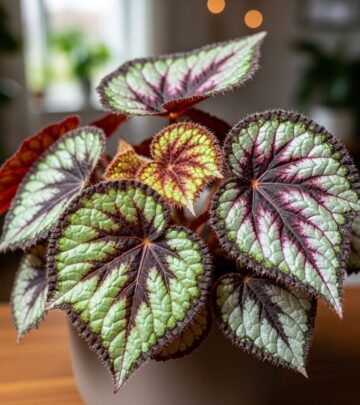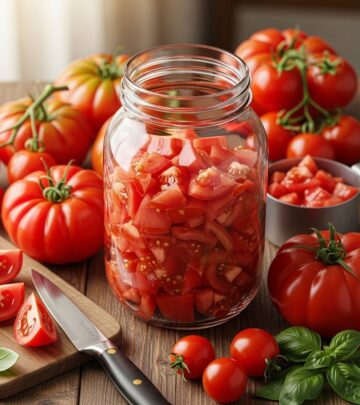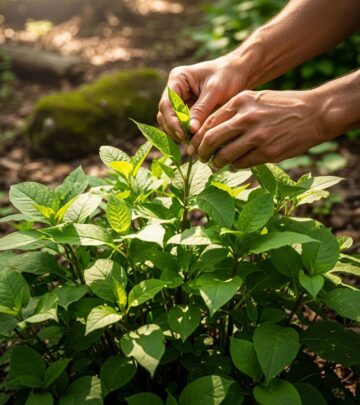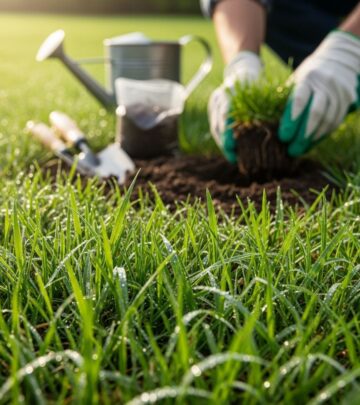How To Get Rid Of Aphids On Roses: 7 Proven Methods
Say goodbye to annoying garden pests with proven strategies for vibrant, healthy blooms.
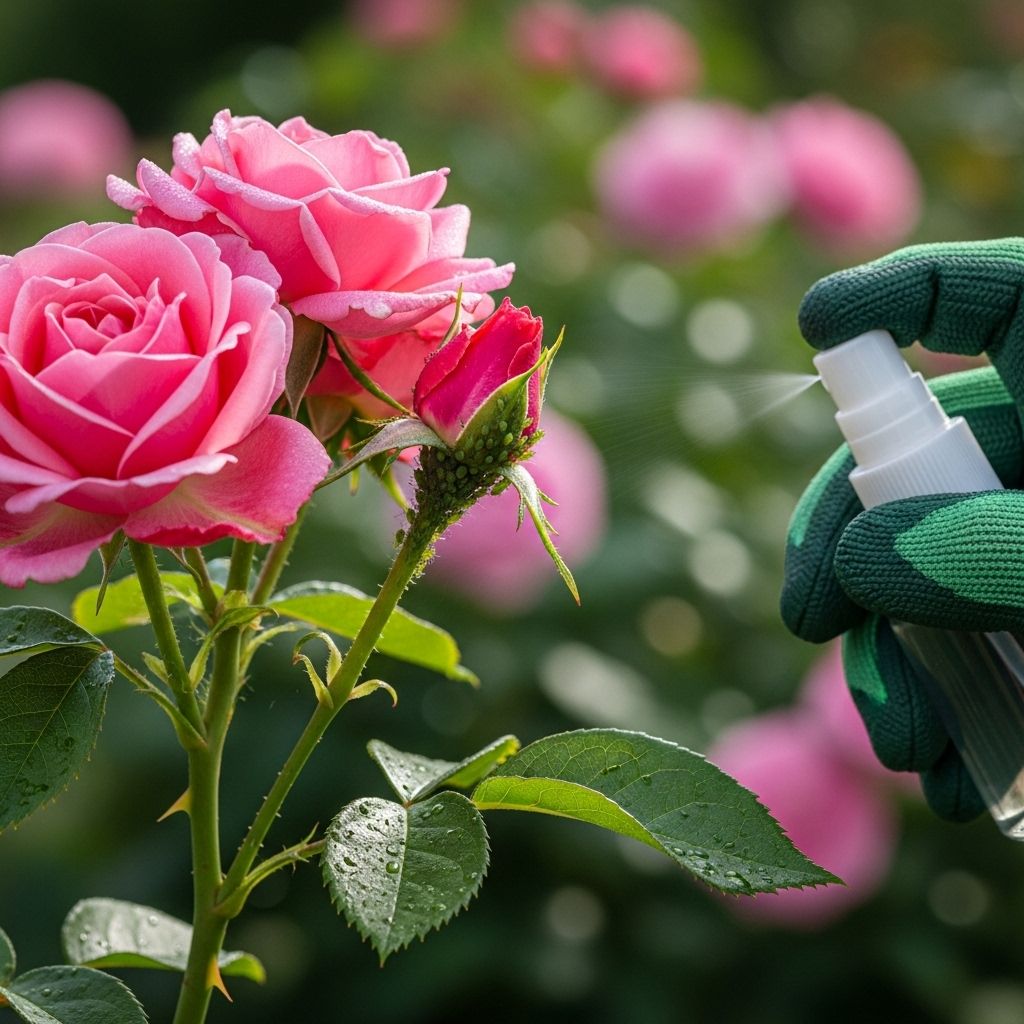
Image: HearthJunction Design Team
How to Effectively Eliminate Aphids on Roses: The Complete Guide
Roses represent the pinnacle of garden elegance, cherished worldwide for their romantic blooms and captivating fragrances. However, these beloved plants frequently face challenges from various pests, with aphids being particularly troublesome. These tiny insects are irresistibly drawn to roses for the sweet sap contained within their leaves, stems, and developing buds.
The concerning aspect of aphid infestations is how rapidly they can multiply, sometimes overwhelming plants in just days. When present in large numbers, aphids can cause significant damage to plant tissues, potentially weakening or even killing your prized roses. This comprehensive guide will walk you through identifying aphids, understanding their impact, and implementing effective control methods to protect your roses.
What Are Aphids?
Aphids are small, soft-bodied insects that belong to the superfamily Aphidoidea. These pear-shaped pests typically measure between 1/16 to 1/8 inch long and come in various colors including green, yellow, brown, red, and black, depending on the species and host plant. Rose aphids are often green or pinkish.
These insects have several distinctive features that make them recognizable under close inspection:
- Soft, somewhat translucent bodies
- Long, slender legs
- Two tube-like structures (called cornicles) protruding from their rear end
- Ability to exist in both winged and wingless forms
Aphids reproduce at an astonishing rate. Female aphids can give birth to live young without mating, and these offspring can begin reproducing within a week. This reproductive efficiency explains how aphid populations can explode so quickly on rose plants.
How Do Aphids Affect Roses?
Understanding how aphids damage roses is crucial for recognizing infestations early and taking appropriate action. These pests affect roses in several significant ways:
Aphids feed by piercing plant tissues with their specialized mouthparts and sucking out the sap. This feeding behavior directly removes nutrients from the plant, weakening it over time. The damage is particularly harmful to new growth, which is where aphids typically concentrate.
Beyond the direct feeding damage, aphids excrete a sticky substance called honeydew as they process the plant sap. This sugary residue can coat leaves and stems, eventually leading to the growth of sooty mold, a black fungus that further weakens the plant by blocking sunlight from reaching the leaves.
Additionally, aphids can transmit plant viruses as they move from one plant to another, potentially introducing diseases to previously healthy roses. Their feeding activity can also cause leaves to curl, buds to become deformed, and new growth to be stunted.
How to Recognize the Presence of Aphids on Roses
Early detection of aphid infestations can make control much easier. Here are the key signs that indicate aphids have taken up residence on your roses:
- Clusters of small insects gathered on new growth, buds, and the undersides of leaves
- Sticky honeydew residue on leaves and stems or on surfaces beneath the plant
- Presence of ants, which are attracted to the honeydew and may even protect aphids from predators
- Black sooty mold growing on the honeydew
- Curled, distorted, or yellowing leaves
- Stunted or malformed flower buds
Regular inspection of your roses, particularly in early spring when new growth emerges, can help you catch aphid problems before they become severe. Pay special attention to the tender new shoots, buds, and the undersides of leaves, as these are aphids’ preferred feeding sites.
What Does Aphid Damage Look Like on Roses?
Recognizing aphid damage can help you determine whether these pests are the cause of your rose plants’ problems. Typical signs of aphid damage include:
- Curled or distorted leaves, especially on new growth
- Yellowing foliage that may eventually drop from the plant
- Stunted or malformed flower buds that may fail to open properly
- Sticky residue (honeydew) on leaves, stems, and surfaces below the plant
- Black sooty mold growing on the honeydew
- Generally weakened plant with poor vigor and reduced flowering
In severe cases, continued aphid feeding can significantly weaken roses, making them more susceptible to other pests and diseases. If left untreated, a heavy infestation might even kill young or already stressed plants.
How to Get Rid of Aphids on Roses
When it comes to controlling aphids on roses, numerous effective organic methods exist that avoid the need for harsh chemical pesticides, which can harm beneficial insects and wildlife. Here are several proven approaches to eliminate aphids from your rose plants:
Water Spray Method
One of the simplest and most environmentally friendly ways to remove aphids is by using a strong stream of water from your garden hose. Direct a forceful spray at affected areas of your rose plants, being careful not to damage delicate blooms or stems. The water pressure knocks aphids off the plant, and many will not be able to return. For best results:
- Apply the water spray early in the morning to give plants time to dry during the day
- Focus on the undersides of leaves and new growth where aphids concentrate
- Repeat this treatment every few days as needed until the infestation subsides
Soap Spray Solution
Insecticidal soap sprays are highly effective against soft-bodied insects like aphids while being relatively gentle on beneficial insects. You can purchase commercial insecticidal soaps or make your own using mild dish soap:
- Mix 1 teaspoon of mild liquid soap (not detergent) with 1 quart of water
- Transfer the solution to a spray bottle
- Test on a small area of the plant first to ensure it doesn’t cause damage
- Spray all affected areas thoroughly, including the undersides of leaves
- Apply weekly or after rain until the aphid population is controlled
The soap disrupts the insects’ cell membranes, causing them to dehydrate and die. For sensitive plants, rinse the soap solution off with clean water after a few hours to prevent potential leaf burn.
Neem Oil Treatment
Neem oil is a natural insecticide derived from the seeds of the neem tree. It acts as both a repellent and a growth regulator for many insect pests:
- Follow the dilution instructions on the product label (typically 2 teaspoons per quart of water)
- Add a small amount of mild soap to help the oil mix with water
- Spray thoroughly on all plant surfaces, especially where aphids are present
- Apply in the evening or early morning to prevent leaf burn and minimize impact on beneficial insects
- Reapply every 7-14 days as needed
Beneficial Insects
Nature provides its own aphid control in the form of beneficial predatory insects. Ladybugs, lacewings, hoverfly larvae, and parasitic wasps all feed on aphids and can help keep populations in check. To attract these helpful garden allies:
- Plant diverse flowering plants that provide nectar and pollen
- Avoid using broad-spectrum insecticides that kill beneficial insects
- Consider purchasing and releasing beneficial insects, following supplier instructions
- Provide habitat like shallow water sources and shelter to encourage beneficial insects to stay
Companion Planting
Certain plants can help repel aphids or mask the scent of roses that attracts them:
- Plant members of the allium family (garlic, chives, ornamental alliums) near roses
- Incorporate strong-scented herbs like basil, mint, or feverfew into your rose garden
- Add marigolds, which emit a scent that confuses and repels many pests
- Consider nasturtiums as “trap plants” that attract aphids away from roses
Vinegar Solution
A diluted vinegar solution can be used as an aphid treatment, though it should be applied with caution:
- Mix 1 part white vinegar with 3 parts water
- Test on a small area first, as sensitive plants may experience foliage burn
- Apply with a spray bottle, avoiding flowers and focusing on aphid clusters
- Rinse plants with clean water after a few hours to prevent damage
Bird Attraction
Many songbirds feed on insects, including aphids. Installing bird feeders, birdhouses, and birdbaths near your rose garden can encourage these natural pest controllers to visit regularly and help keep aphid populations down.
How to Prevent Aphids on Roses
Prevention is always easier than treatment when it comes to garden pests. Here are effective strategies to keep aphids from becoming a problem on your roses:
- Inspect plants regularly, especially in early spring when new growth emerges
- Maintain plant health through proper watering, fertilization, and pruning
- Avoid excessive nitrogen fertilizer, which promotes soft, succulent growth that attracts aphids
- Remove severely infested parts of plants promptly
- Control ant populations, as they protect aphids from predators
- Use preventive companion planting with aphid-repelling plants
- Apply preventive neem oil or insecticidal soap treatments before problems develop
- Encourage biodiversity in your garden to support natural predators
Frequently Asked Questions
Will aphids kill my rose plants?
While a small number of aphids typically won’t kill established rose plants, severe and prolonged infestations can significantly weaken plants, making them susceptible to other problems. Young or already stressed roses may succumb to heavy aphid pressure if left untreated.
When are aphids most likely to attack roses?
Aphids are most problematic in spring when new growth emerges, and again in fall. They prefer the tender new shoots, buds, and leaves. Populations tend to build up quickly in warm weather but may decline naturally during very hot summer periods.
Are chemical insecticides necessary to control aphids on roses?
No, chemical insecticides are rarely necessary and should be considered a last resort. The organic methods described above are usually sufficient to control aphid populations when applied consistently. Chemical treatments can harm beneficial insects that naturally control aphids and may lead to stronger infestations later.
How often should I treat my roses for aphids?
For active infestations, treatments like water sprays can be applied every few days, while soap sprays or neem oil applications typically should be used weekly. Once the infestation is under control, regular monitoring and occasional preventive treatments during vulnerable periods are usually sufficient.
Can I use the same treatments on all my rose varieties?
While most treatments are safe for all rose varieties, some roses may have more sensitive foliage than others. Always test any spray solution on a small area first, and be particularly careful with soap and oil-based treatments on roses with very delicate foliage.
By understanding aphids and implementing these safe, effective control methods, you can protect your roses from these common pests and enjoy beautiful, healthy blooms throughout the growing season. Regular monitoring and prompt action at the first sign of aphids will help ensure your rose garden remains the showpiece of your landscape.
References
Read full bio of Srija Burman







